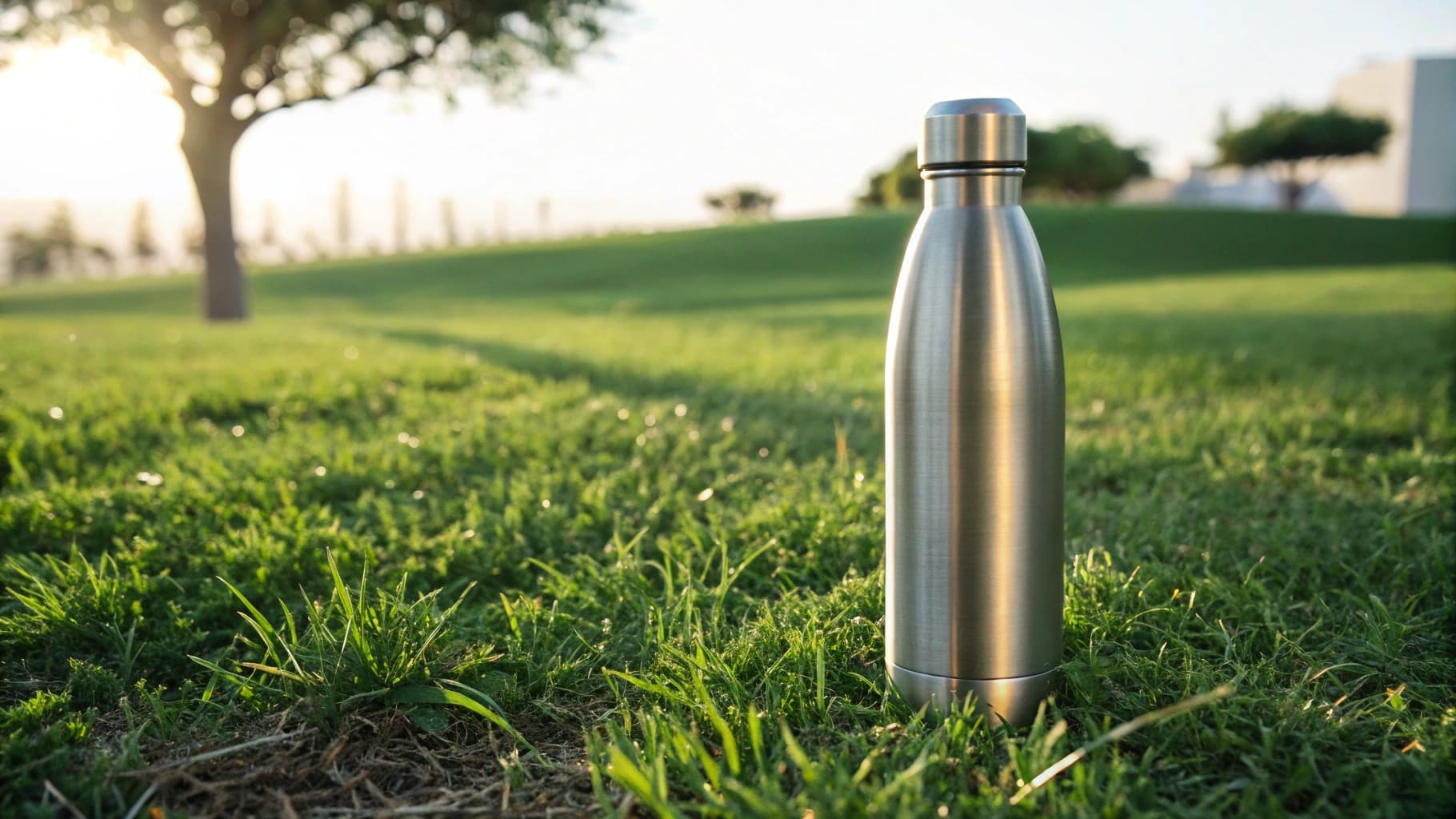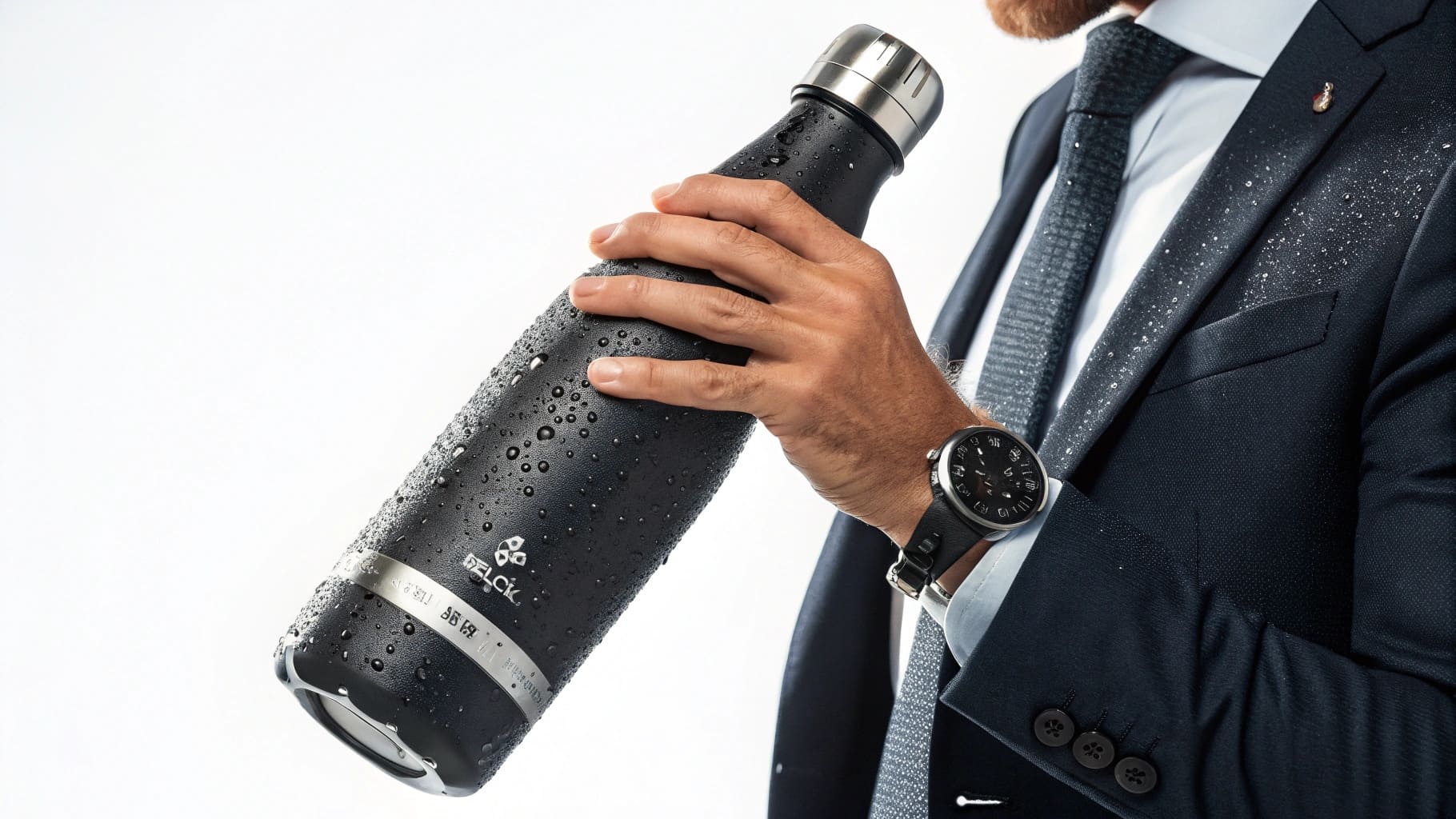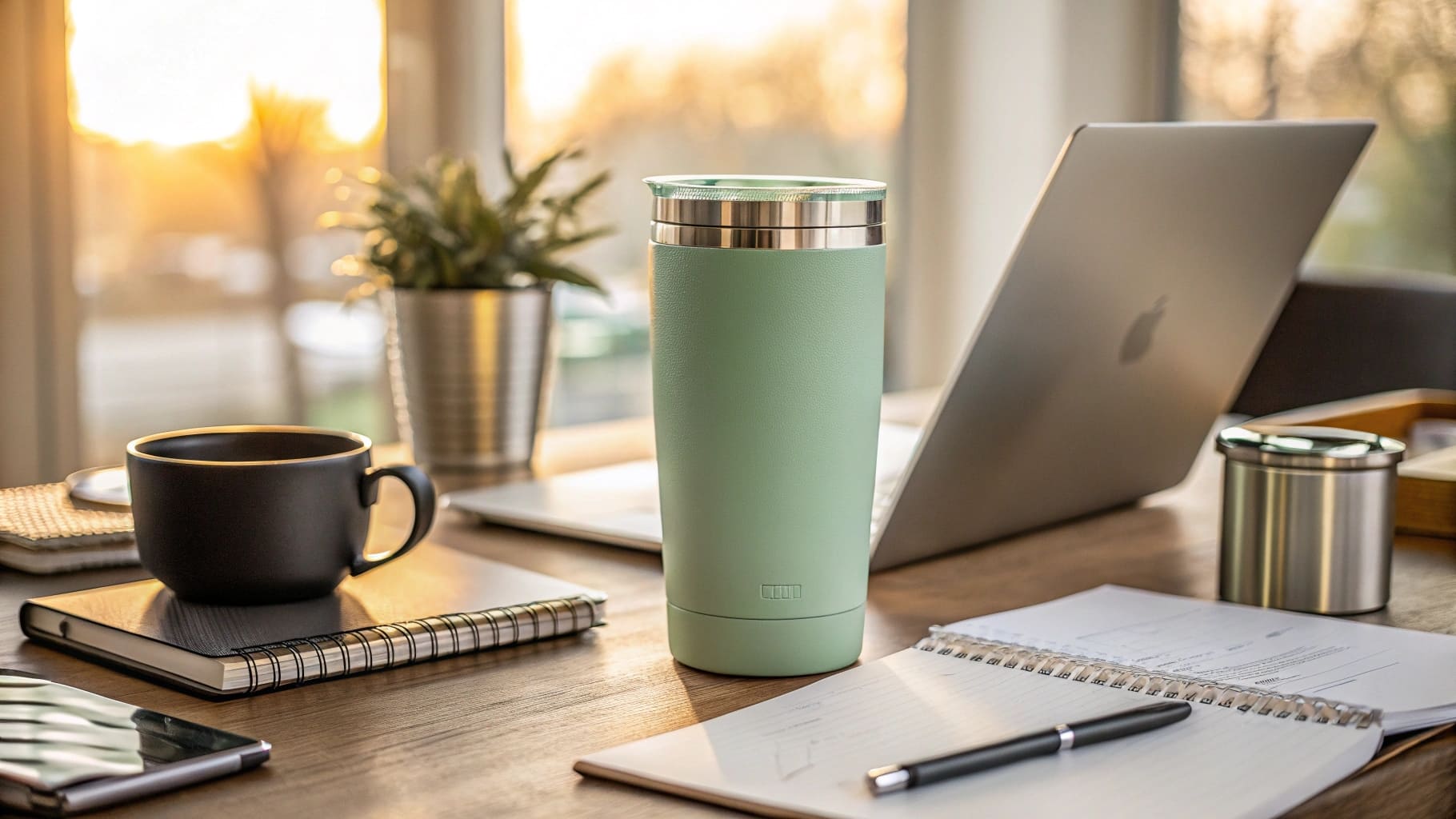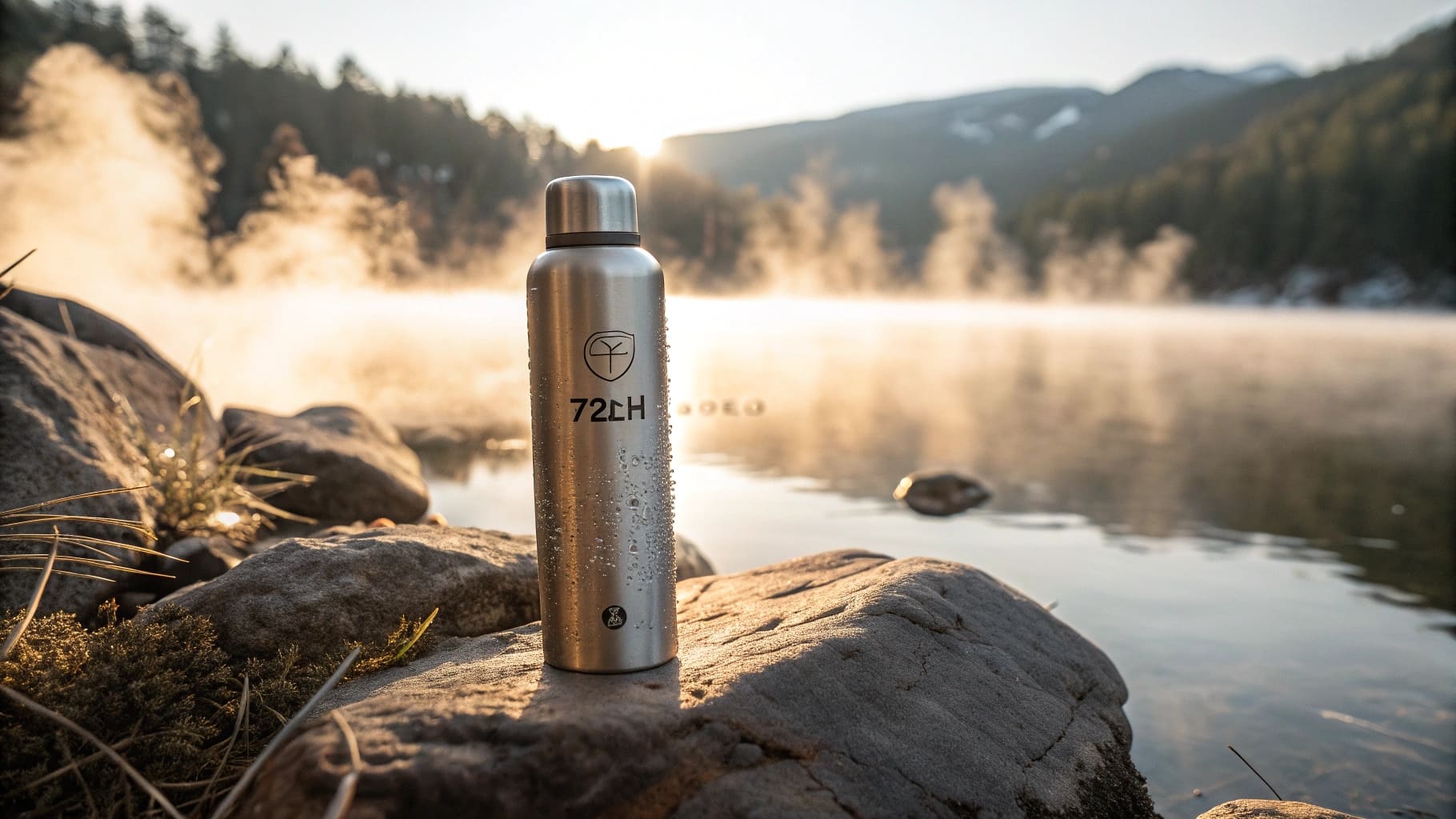Tired of flimsy, polluting single-use plastics? You want a durable, stylish, and safe hydration solution. The best reusable bottles offer all this and more, making your choice impactful.
For 2025, the best reusable water bottles are those blending sustainability, material safety like high-grade stainless steel, and extensive customization. They must be non-toxic, free from microplastic leaching from the bottle body, and align with an eco-conscious, personalized lifestyle, making them ideal for discerning B2B buyers.

As a B2B supplier in the stainless steel drinkware market, I've seen trends come and go. But the demand for quality, safety, and style is a constant. We get a lot of questions from procurement officers and startup bosses. They want to know what makes a bottle a "best-seller" and what consumers are truly looking for. It’s not just about holding water anymore. It’s about a statement, a commitment to health, and a nod to sustainability. Let’s explore what you, as a potential B2B partner, should be looking for by examining some popular questions.
Why is Frank Green so popular?
Stuck with generic, uninspiring water bottles? It's hard to stand out or express personal style. Frank Green offers a vibrant, customizable alternative that consumers love.
Frank Green's popularity stems from its stylish designs, extensive personalization options, and strong connection to an eco-conscious lifestyle. Consumers appreciate the ability to mix and match colors and components, creating a bottle that feels uniquely theirs while being environmentally friendly.

When I talk to clients like Mark Shenng, a company owner in Canada who imports stainless steel water bottles, he always emphasizes the "sell-through" factor. A bottle might be high quality, but if it doesn't appeal to the end consumer, it just sits on the shelf. Frank Green cracked the code on appeal. They understood that a water bottle is also an accessory.
Key Factors Driving Frank Green's Success
Frank Green didn't just create a water bottle; they created a desirable object. This is crucial for B2B buyers to understand.
- Aesthetics and Customization: They offer a wide palette of colors for different parts of the bottle (body, lid, button). This level of personalization allows consumers to feel a sense of ownership and express their individuality. For us at Icobottle, this reinforces the importance of offering extensive OEM/ODM customization1 – from Pantone color matching to unique lid designs.
- Lifestyle Branding: Frank Green markets itself as part of a sustainable and stylish lifestyle. This resonates deeply with environmentally conscious consumers who also value design.
- Community and Scarcity: Limited edition releases and a strong social media presence create a sense of community and, at times, scarcity, further driving demand.
For B2B professionals sourcing products, the lesson from Frank Green is clear:
| Feature | Implication for B2B Sourcing |
|---|---|
| Customization | Prioritize suppliers with strong OEM/ODM capabilities. |
| Design Appeal | Look for modern aesthetics and trend-awareness. |
| Eco-Consciousness | Ensure products align with sustainability values. |
My experience shows that procurement officers are increasingly asking for these "softer" features, not just the technical specifications.
Are Yeti water bottles non-toxic?
Worried about harmful chemicals in your drinkware? Many fear that reusable bottles might leach toxins. Yeti addresses this by using high-quality, safe materials for peace of mind.
Yes, Yeti water bottles are generally considered non-toxic. They are primarily made from 18/8 food-grade stainless steel2, which is inert and doesn't leach chemicals. Their plastic components, like lids, are also typically BPA-free, ensuring a safe drinking experience.

The question of material safety is non-negotiable, especially for clients like Mark who rebrand products for markets like Canada. Consumers are more informed than ever, and the term "non-toxic" is a powerful selling point. When we manufacture bottles at Icobottle, using certified food-grade stainless steel is the absolute baseline.
Understanding Non-Toxicity in Drinkware
The term "non-toxic" in the context of water bottles primarily refers to the materials not releasing harmful substances into the contents.
- 18/8 Stainless Steel: This is the hero material. "18/8" refers to the composition: 18% chromium and 8% nickel. This specific alloy is chosen for its corrosion resistance and stability. It doesn't react with beverages, so it doesn't impart any metallic taste or leach harmful chemicals. This is a key reason why stainless steel is preferred over aluminum, which often requires a plastic liner that can degrade or leach.
- BPA-Free Plastics: Bisphenol A (BPA) is an industrial chemical that has been used to make certain plastics and resins. It's a known endocrine disruptor. Reputable brands like Yeti ensure that any plastic parts that come into contact with beverages (like lids, spouts, or straws) are made from BPA-free plastics3 like polypropylene (PP #5) or Tritan. As a manufacturer, we always provide material safety data sheets (MSDS) and test reports (e.g., FDA, LFGB compliance) to our B2B clients.
- No Harmful Linings: Unlike some cheaper metal bottles, quality stainless steel bottles like Yeti's (and ours) do not require any internal plastic lining because the steel itself is food-safe and non-reactive.
For B2B buyers, verifying these aspects is critical:
| Material Component | Key Safety Check | Certification to Look For |
|---|---|---|
| Bottle Body | 18/8 (or 304) Stainless Steel | Material Composition Test |
| Lids/Straws | BPA-Free plastics (e.g., PP, Tritan) | FDA, LFGB, REACH |
| Coatings (External) | Lead-free, non-toxic powder coats | Test reports for heavy metals |
Mark often shares his pain point about occasional certificate fraud from some suppliers. This is why we emphasize transparency and third-party verification at Icobottle. It builds trust, which is essential for long-term B2B partnerships.
What water bottles have no microplastics?
Concerned about microplastics in your water? This growing issue makes choosing the right bottle material vital. Bottles made entirely of stainless steel or glass are your best bet.
Water bottles made primarily from high-quality stainless steel (like 18/8 or 304 grade) or glass are the best options for avoiding microplastics originating from the bottle itself. It's also crucial that any plastic components, like lids, are made from stable, BPA-free materials.

The microplastic scare is real, and it's something I discuss frequently with procurement officers. They know that end-consumers are actively seeking ways to reduce their exposure. For B2B clients, offering a "microplastic-free" (from the bottle body) solution is becoming a significant competitive advantage.
Minimizing Microplastic Exposure from Water Bottles
Microplastics are tiny plastic particles, and their presence in our environment and bodies is a growing concern. When it comes to water bottles, the primary source of microplastics would be the degradation of plastic components or the bottle itself if made from plastic.
- Stainless Steel Excellence: The main body of a high-quality stainless steel water bottle will not shed microplastics into your water. The material is stable and doesn't break down in that manner under normal use. This is a core benefit we highlight at Icobottle for our stainless steel hip flasks, tumblers, and bottles.
- Glass as an Alternative: Glass is another excellent inert material that won't leach microplastics. However, it's heavier and more fragile than stainless steel, which is why stainless steel often wins for portability and durability.
- The Lid Factor: The most likely source of microplastics, if any, would be from plastic lids, threads, or straws, especially if they are made from lower-quality plastics or undergo significant wear and tear. This is why it's crucial to:
- Choose bottles with lids made from durable, high-quality, BPA-free plastics (like polypropylene #5).
- Ensure a good fit and finish to minimize friction and degradation of plastic parts.
- Regularly inspect and replace worn-out lids or seals.
For B2B sourcing, the focus should be:
| Aspect | Consideration for "No Microplastics" (from bottle body) | Best Practice for Lids/Accessories |
|---|---|---|
| Bottle Material | Food-Grade Stainless Steel (18/8, 304) or Glass | N/A |
| Lid/Straw Material | N/A | High-Quality, BPA-Free, Durable Plastics |
| Manufacturing | Smooth finishes, no rough edges internally | Precision molding, quality seals |
Mark once told me about a shipment delay that caused him to miss a peak sales season. Issues like that, or concerns about material integrity, can destroy a business relationship. That’s why we, at Icobottle, are so focused on reliable production and verifiable quality – ensuring our bottles are safe and dependable, giving our clients peace of mind about issues like microplastics.
Conclusion
In 2025, top reusable bottles blend style, verified safety (non-toxic, no microplastics from steel), and customization. B2B success hinges on meeting these evolving consumer demands.
-
Exploring this resource will provide insights into how customization enhances consumer engagement and brand loyalty. ↩
-
Explore the benefits of 18/8 food-grade stainless steel, a key material for safe and durable drinkware. ↩
-
Learn about BPA-free plastics and their significance in ensuring safe drinking experiences. ↩

